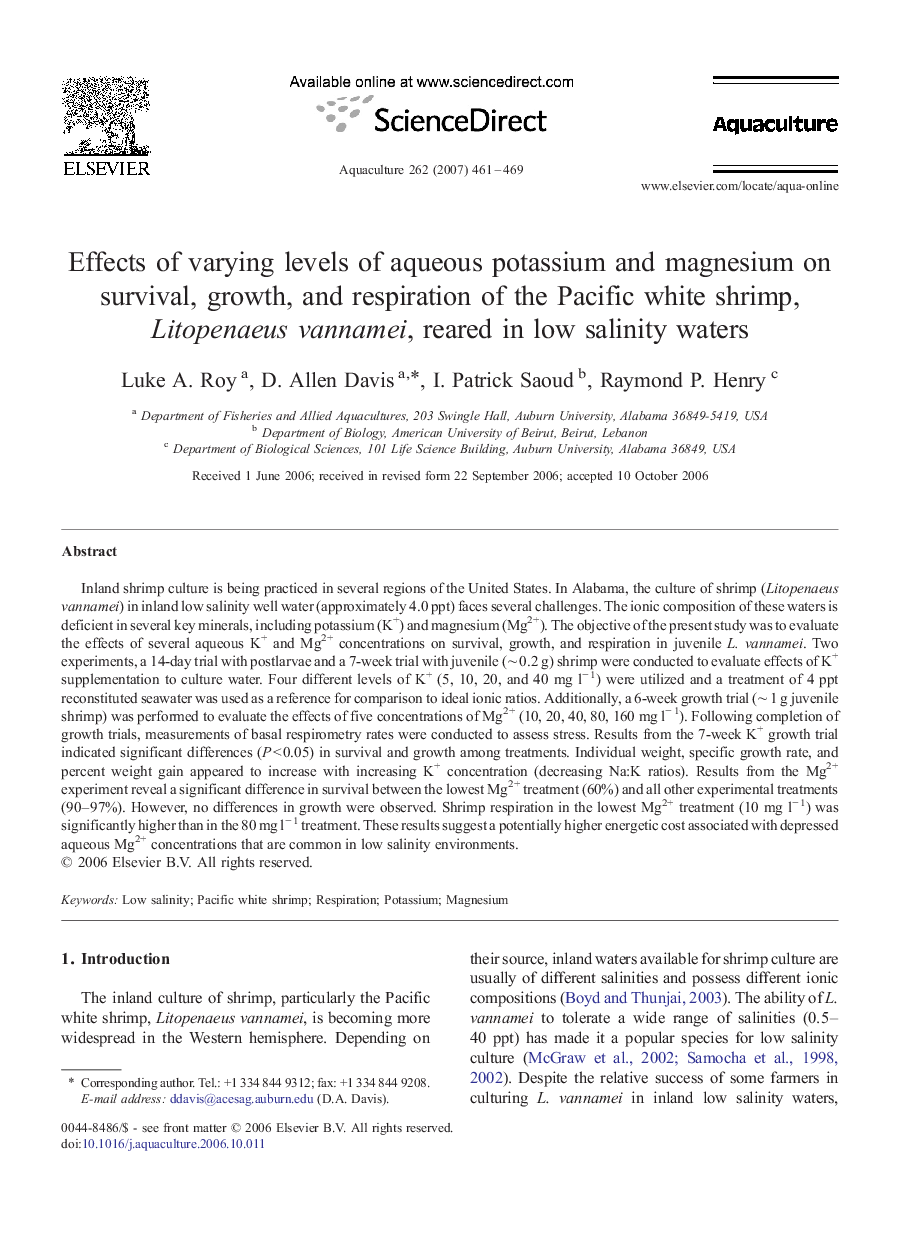| Article ID | Journal | Published Year | Pages | File Type |
|---|---|---|---|---|
| 2425342 | Aquaculture | 2007 | 9 Pages |
Inland shrimp culture is being practiced in several regions of the United States. In Alabama, the culture of shrimp (Litopenaeus vannamei) in inland low salinity well water (approximately 4.0 ppt) faces several challenges. The ionic composition of these waters is deficient in several key minerals, including potassium (K+) and magnesium (Mg2+). The objective of the present study was to evaluate the effects of several aqueous K+ and Mg2+ concentrations on survival, growth, and respiration in juvenile L. vannamei. Two experiments, a 14-day trial with postlarvae and a 7-week trial with juvenile (∼ 0.2 g) shrimp were conducted to evaluate effects of K+ supplementation to culture water. Four different levels of K+ (5, 10, 20, and 40 mg l− 1) were utilized and a treatment of 4 ppt reconstituted seawater was used as a reference for comparison to ideal ionic ratios. Additionally, a 6-week growth trial (∼ 1 g juvenile shrimp) was performed to evaluate the effects of five concentrations of Mg2+ (10, 20, 40, 80, 160 mg l− 1). Following completion of growth trials, measurements of basal respirometry rates were conducted to assess stress. Results from the 7-week K+ growth trial indicated significant differences (P < 0.05) in survival and growth among treatments. Individual weight, specific growth rate, and percent weight gain appeared to increase with increasing K+ concentration (decreasing Na:K ratios). Results from the Mg2+ experiment reveal a significant difference in survival between the lowest Mg2+ treatment (60%) and all other experimental treatments (90–97%). However, no differences in growth were observed. Shrimp respiration in the lowest Mg2+ treatment (10 mg l− 1) was significantly higher than in the 80 mg l− 1 treatment. These results suggest a potentially higher energetic cost associated with depressed aqueous Mg2+ concentrations that are common in low salinity environments.
